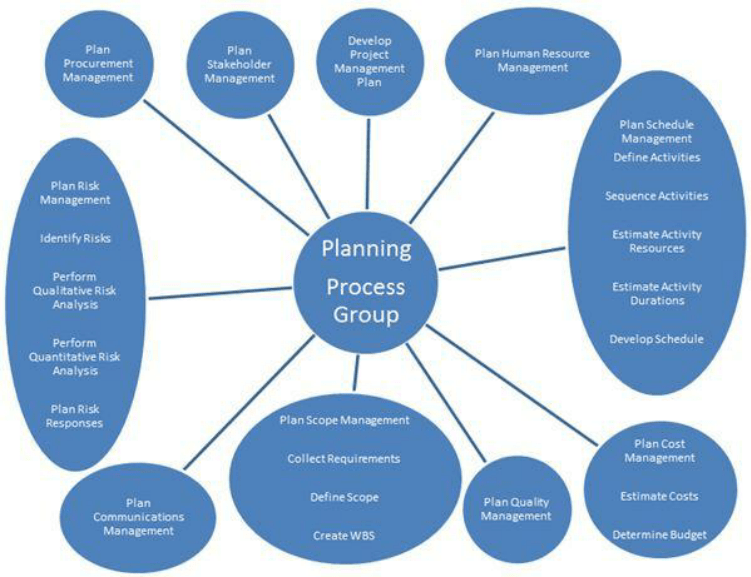Table of Contents
1. Introduction
Construction Planning is the initial phase of any construction project and is vital for the progress as well as for the successful completion of the project.
In simple terms, planning can be understood as the process of predetermining the set of activities to be conducted to guide the project towards a specified direction i.e. towards its efficient completion.

It refers to the mental process of deciding about the future line of action.
In the planning process, various alternatives may be present and the best alternative among them can be duly selected for the design and construction.
2. Objectives of Construction Planning
The main objectives of construction planning can be listed as follows:
⦁ The efficient design of all the structural components and elements.
⦁ Appropriate selection of machinery and equipment.
⦁ Suitable procurement of human resources and materials.
⦁ Ensure site management and safety at all times.
⦁ Efficient management of the funds and cash flows.
⦁ Proper management and mitigation of potential hazards.
3. Criteria of Construction Plan
A construction plan should have the following characteristics to be effective:
⦁ A construction plan should be realistic.
⦁ The language used must be as simple as possible.
⦁ It must be easily understandable.
⦁ It must be flexible enough to adapt the potential changes.
⦁ A construction plan must always deliver the right message.
4. Types of Construction Plan
Construction plans can be generally divided into the following types:
1. Single-Use Plan
As the name itself implies, single-use plans are the type of plans that are prepared and employed for a particular purpose.
These plans are mostly prepared for accomplishing a specific goal and can be drafted in a short period.
2. Standing Plan
Standing plans are the type of plans that usually consists of a set of rules, procedures, policies and guidelines for the effective management of an undertaking.
3. Administrative Plan
Administrative plans are the special type of plans that are generally drafted for the administrative management of the project and are focused on achieving the goal of the project.
4. Strategic Plan
The strategic plan is usually prepared considering the entire project and its aspects.
These plans mainly focus on several factors that affect the development of the project as well as the management team.
5. Steps in Construction Planning
Construction planning involves the following series of steps:
1. Identification of all the potential hazards, risks and problems that any be encountered during the project.
2. Determination of all possible alternative solutions for the problems.
3. Fixation of the commencement date, the total contract or project duration and the handover date.
4. Determination of all the necessary resources both human and non-human.
5. Estimation of the overall project cost and ways of financial assistance.
6. Evaluation of the drafted plan and its effectiveness.
6. Stages of Construction Planning
In general, construction planning involves the following three stages:
1. Pre Planning Phase:
The pre-planning phase is the initial phase of construction planning.
It mostly includes the following steps:
a. Determination of the project objectives.
b. Drafting of the outline or framework of the project to be carried out.
c. Justification of the suitability and applicability of the entire project.
d. Conducting a cost-benefit analysis.
e. Conducting cost analysis of other alternatives.
2. Detailed Planning Phase:
The detailed planning phase is the most important phase of construction planning and involves the following steps:
a. Preparation of detailed drawings, specifications and bill of quantities.
b. Distribution of responsibilities.
c. Preparation of the detailed logical sequence of activities to be carried out.
3. Monitoring and Control Phase:
Monitoring and control phase is the final stage of construction planning.
It includes the following series of steps:
a. Monitoring of the progress of the project following the drafted schedule.
b. Changing and updating the schedule as per the site requirement.
c. Revising and preparing the forecasts of the resources and costs.
| Read More: Tender Preparation and Tender Notice |
| Read More: Offsite Construction |

